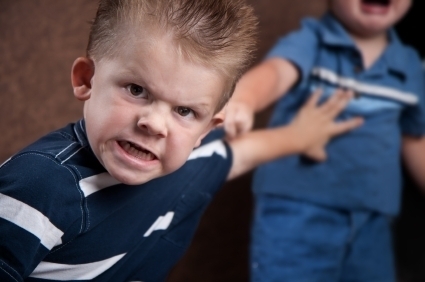It can be easy to loose your patience when dealing with an especially unruly or angry child, but in doing so you are really just reinforcing the child’s angry behavior ie Anger Management. You can use some fun ways to get the child to see the excessive nature of their own anger, instead of reacting with anger
Although in especially heated situations this may be a struggle, the faster you can get the child to release their anger, the quicker you can diffuse the situation and have an efficient conversation. Contrary to anger management for adults, anger management for kids is less restrictive. With Kids, it is possible to use more imaginative techniques.
First step: Point Out the Obvious for Anger Management
If your child is reacting in a ridiculously angry way, point it out calmly. You should not tease your child about it, but make them understand how silly it is to rave and rant. Pretend their words are blowing you over or make an exaggerated face of surprise in return. Make your message clear, but your reaction light hearted. Because kids don’t have the same social experience as adults to pick up on small nuances, you don’t need to be subtle in addressing anger management for kids. If their anger doesn’t break down yours, you will be able to break down the walls the child has erected around their emotions.
Second step: Create Space
If the child is still not responding to your efforts even if you’ve reacted light-heartedly and calmly, there is no harm in expressing your inability to deal with the child in their angry state, and then just walking away. If the child runs screaming after you after using this technique, calmly remind he or she that you can only speak with them when they have calmed down, and do not react to them until their anger has subsided. You’ll know that you have been effective in driving home your message if the child understands that they have to work past their anger in order to get your attention. If you are consistent in your message, the child will learn quickly how to cope with his or her own anger.
If you can remember how frustrating it felt to be a child and to want to be heard, you’ll hold the key to anger management for kids. In the case of anger management for kids, it is less a symptom of underdevelopment, as it may be in adults, and more a lesson that has not yet been learned. The best teachers are not necessarily the strictest. When dealing with anger management for kids, remember that the best teachers are the ones who can see past the child’s surface reaction to the little person inside who’s begging for help.
